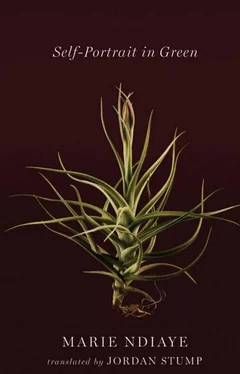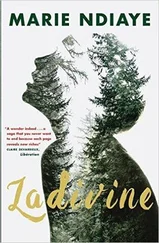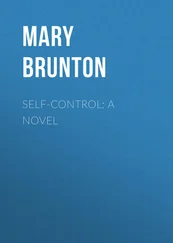I want to be away from this house, and the woman in green tries to hold me back. She doesn’t lay a hand on me, she only speaks. Another part of me would like to stay a little longer. I’m always interested in stories. Nevertheless, with some effort, I manage to go on my way. From the yard I can hear her still talking in the kitchen, I hear her lazy voice, her droning sentences, her plain words, and I tell myself: lucky for me she’s not a gifted speaker.
I’ll see her again, we’ll be almost friends. I know she’ll be replaced one day by another green woman, whom I won’t have chosen either.
* * *
December 2003 — Why, since we take pains to protect our cars, since we devote the necessary time to driving them off someplace where the water can’t touch them, why, having done that, do we hurry back to our endangered houses, as if those houses were living beings that we mustn’t under any circumstances abandon to the flood? Why, once we’ve carried the ground-floor furniture upstairs, do we not flee, why do we prefer the prospect of imprisonment in our houses surrounded, if not filled, with cold, silty water, and of a long wait there, stuck on the second floor, idle, bored, and uncomfortable, till the water recedes?
After all, that’s how it’s meant to be. You don’t leave your house. Is it a question of honor? What sort of honor could be involved, when there’s nothing to defend, no one to safeguard, and what will the house remember of all this? What gratitude will the house feel at not having been left alone in the churning waters?
For years my father was self-employed as a seedsman, then as a restaurateur. He picked out the restaurant’s name on his own. He called it Ledada, he furnished it with garden tables and chairs, painted animal frescoes on the walls in bold, sweeping strokes. He grew out his hair, and dyed it to hide the gray. He remarried, and lost so much weight that he began to look strikingly like photographs of himself as a lanky young man, and that filled him with pride. He hung the most flattering of these photos over the tables at Ledada. When some female customer inquires who that tall, lithe, handsome young man in black and white might be, my father answers in a mysterious voice, “Oh, that’s someone who’ll go far.” And then, “Do you find him attractive?” My father likes to make conquests, and now he can indulge in a gratuitous sort of seduction, unhurried and playful, since he’s just remarried. For twenty years his new wife was my best friend. Would she still be today, had she not married my father? Surely she would. She waits tables and takes in the money, and all that would belong to the realm of life at its most banal, in my opinion, were it not for a significant detail that has, ever since she became my stepmother, characterized this woman who was once my friend: she dresses only in green. I believe she had brown eyes. And now, by the grace of contact lenses, those eyes are green. Beaming, she explained that all her life she’d dreamt of having green eyes rather than brown, and she had to wait for a husband with a substantial income before she could dream of fulfilling that desire for permanently green eyes, which cost her no less than five euros a day. I asked my wisp of a father what he thought of this caprice. I wasn’t joking. The fact is, I found nothing at all amusing about it. I told myself: here we go again. Again the ambiguity, the groping, the unanswered questions about all this green.
My father sketched delicate circles on the kitchen floor with the tip of his shoe, and I gauged the extravagant length and slenderness his leg had acquired. I sensed his unease.
“And another thing, isn’t this thinness of yours a bit much?” I asked him more gently. “Couldn’t weighing so little be bad for your health?”
“Very possibly,” he said with a quick laugh. “But, you know,” he went on, “you can’t let yourself go. Look how wiry I am! Fat won’t stand a chance with me.”
I returned to the subject at hand:
“You married a brown-eyed woman, and you must have been fond of her eyes. But if they’re green, doesn’t that change your feelings for her in some way?”
My father went on making his drawings and abstract designs on the floor, looking away, and I understood that his wife’s eyes, my ex-best friend’s eyes, were a subject he’d sooner steer clear of. My father is on his fifth or sixth marriage. Presumably he doesn’t want to take any chances, if he can help it, now that he finds himself aging and tired, and it seems a safe bet that he’d rather avoid speaking words that might be heard or repeated outside the kitchen, with which his wife might one day arm herself to demonstrate that he never loved her. Who am I to go undermining their union’s foundation? It simply seems to me that my father — much thinner than before, yes, but no longer young or strong — has failed to appreciate the enormity of those changes in his wife’s appearance. He pretends not to see the uniformly almond-green suits, the green cotton tights, the bottle-green lace-up flats. Or else he pretends to believe all this is simply a matter of his wife’s personal tastes, on which he prefers to have no opinion, and has no connection with their marriage, or the fact that his wife’s stepdaughter was once her best friend. But how, for my part, not to see a meaning in all this, something fated? How not to see, in the apparent coincidence of my father’s remarriage and the transformation of my friend into an eternal woman in green, a message intended for me, transmitted not only by that woman’s personal color but by the couple themselves, a green woman and a skeletal father? How to read that message I don’t yet know.
* * *
Now for an idea of our relationship with each other and the typical atmosphere of Ledada, the restaurant my father opened in the twentieth arrondissement of Paris. At this time, I still have only one child. He’s five years old, and we’ve come to Ledada for lunch, at the invitation of my stepmother. That was something I had to get used to: being invited to visit my own father by my childhood friend, convinced that if I showed up unannounced, if I appeared at the door as if I belonged there, a certain nettled reserve on their part, an exaggerated politeness, would make it clear I’m supposed to avoid any sign of familiarity, which they would find demeaning and upsetting. I sit down with my little boy at the table they’ve reserved for us. My father and his wife are ceremonious. They move the plastic furniture here and there with a distinguished gravity. Pained, I observe that my stepmother is even heavier than last time, and that my father, ever slighter, must weigh half what she does. Once my friend was a slender girl of her time. Once my father was a robust man, skilled in contact sports. Is it all this green that’s undoing them? I wonder, ill at ease in my stepmother’s transparent, emerald gaze. My father disappears into his kitchen, then personally brings us the chicken with lime juice or peanut sauce, and although they’re both serving us, although the child and I are sitting while the other two bustle around us, we know they’re the masters here, the power, the lords of this modest manor, we know it, the child and I, every bit as well as my father and his green wife. They’re displaying their enigmatic intimacy for our benefit, and yet our presence here is unnecessary, is in fact invasive. My deep, longstanding friendship with this woman was over as soon as she married my father. I’ve sometimes told myself this might be for the best. Would it be acceptable for me to hear intimate secrets about my own father? For me to laugh at his behavior as she and I once laughed together at so many boys? No, that would not be a good thing. And maybe it’s also to tell me I’m supposed to keep my distance that my friend has become a woman in green.
Читать дальше












